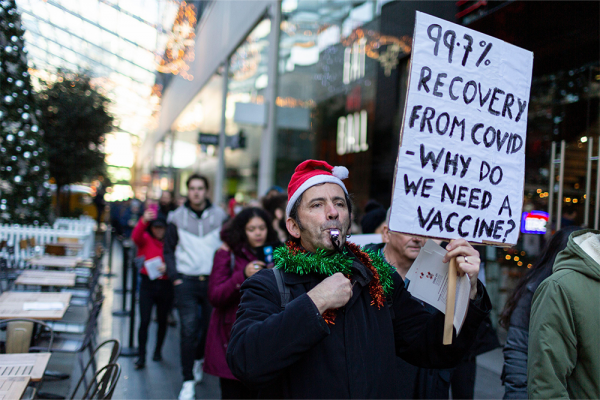Dec 13, 2021
This new survey found a remarkable number of Americans reporting serious family conflict over COVID-19 vaccinations. Fully one in five Americans (19 percent) say that disagreements over COVID-19 vaccinations have caused “major conflict” in their families. Similarly, earlier this fall, PRRI found that 22 percent of Americans reported that their extended family relationships have been “strained to the breaking point” over the issue of getting a COVID-19 vaccination.
Read the Full Article

Already a subscriber? Login
